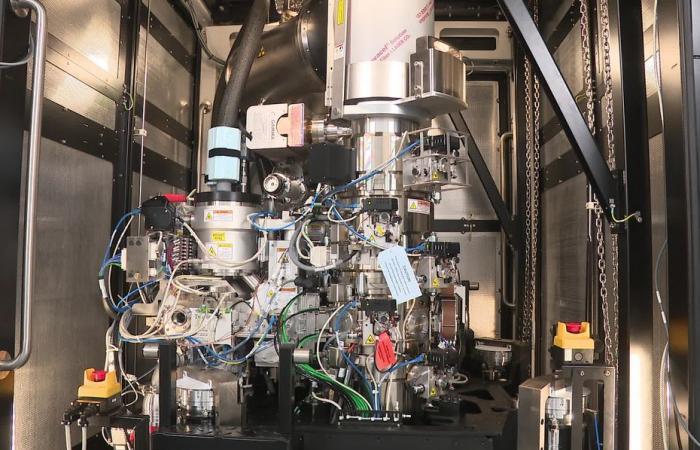
The Titan Krios G4 joined the European Synchrotron (ESRF) in Grenoble on November 8, 2024. A cryo-microscope with multiple applications that could revolutionize research on certain diseases such as Alzheimer’s.
The essentials of the day: our exclusive selection
Every day, our editorial team reserves the best regional news for you. A selection just for you, to stay in touch with your regions.
France Télévisions uses your email address to send you the newsletter “Today’s essentials: our exclusive selection”. You can unsubscribe at any time via the link at the bottom of this newsletter. Our privacy policy
It is at the cutting edge of technology and will once again place Grenoble on the national and international scientific map. The Titan Krios G4 lives up to its name, this particularly precise cryo-microscope is a real titan in the field of research. It was inaugurated on Friday November 8 within the ESRF (European Synchrotron Radiation Facility) de Grenoble, a research center dedicated to the study of matter down to the infinitesimal.
But then, what will this new scientific object be used for? Concretely, it allows molecules and proteins to be frozen in the cold, at a temperature exceeding -180°C. This cooling then helps scientists understand how they work during their observations.
Also read: The Synchrotron celebrates its 30th anniversary: a look back at the greatest discoveries at the Grenoble electron accelerator
This cryo-microscope works in a network with two other machines installed in Strasbourg (Bas-Rhin) and Saint-Aubin (Essonne). “It can be used in human health, for example to analyze the functioning of a molecular machine, to see how bacteria react to antibiotics, etc. explains Guy Schoehn, research director in structural biology at the CNRS.
It is a latest generation microscope which is ultra stable, ultra powerful.
Guy SchoehnDirector of research in structural biology (CNRS)
Cutting-edge scientific equipment that could allow researchers to learn more about certain degenerative diseases such as Alzheimer’s. “With this microscope, we managed to reconstruct 3D protein models,” explains Pauline Juyoux, research engineer in structural biology. “This allows us to understand how they will work and, in many cases, how they can be targeted with drugs. This could lead to a leap in knowledge of diseases and treatments”she adds.
Alzheimer’s disease is not the only one that can be studied using the cryo-microscope; other infectious pathologies or even cancers could be analyzed using the device. It also has an interest in the field of ecology, allowing, among other things, the study of micro-algae. What is certain is that microbiology has a bright future ahead of it. And the Titan Krios G4 could be one of the scientific heroes of tomorrow.





